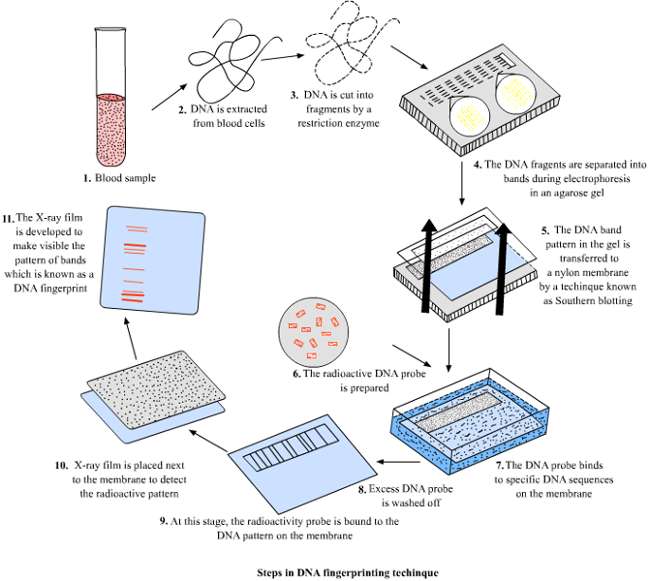How is "DNA fingerprinting" done?
1 Answer
DNA fingerprinting is done by using several techniques, step by step. DNA fingerprinting is not at all a sequencing technique: rather it identifies repetitive sequences present in one's genome. Such repeat sequences also vary in length due to variation in number of repeats, hence called variable number tandem repeats: VNTRs.
Explanation:
DNA fingerprinting is done in many steps: it would involve
- collection of biological sample,
- extraction of DNA,
- amplification of DNA in PCR machine
- cutting the DNA in fragments,
- arranging the fragments by using electrophoresis,
- transferring the fragments on nytrocellulose membrane,
- hybridising specific sequences by using radioactive probes,
- washing the membrane before developing an X ray film.
The X ray plate will remain as a permanent genetic 'fingerprint' of the person. Such fingerprints are inherited: 50% from mother and 50% from father, hence a person could be easily identified when fingerprints are compared between parents/siblings.

As the processes involved in fingerprinting are expensive, case studies are done in batches and individual results may come after a couuple of months.

